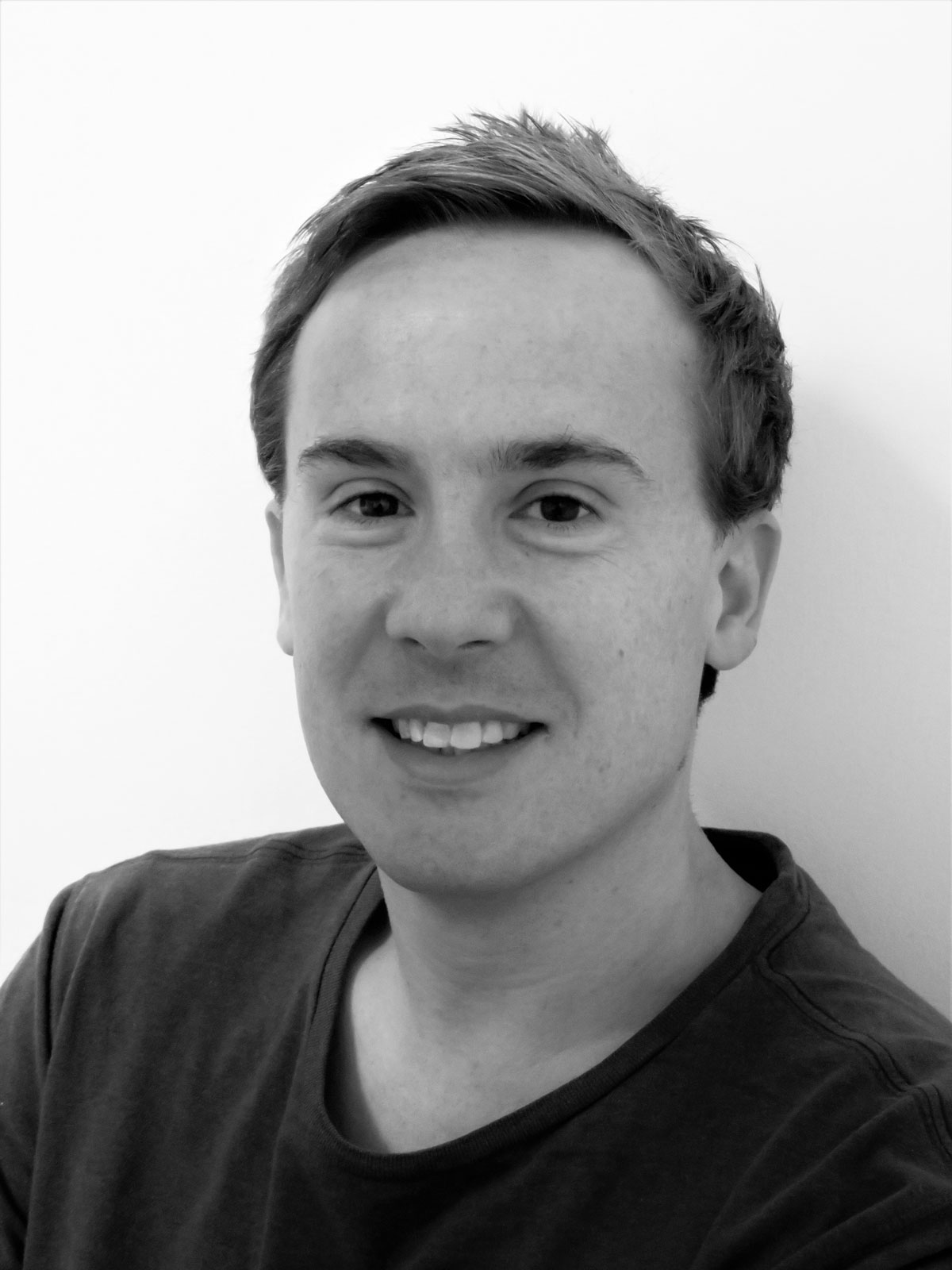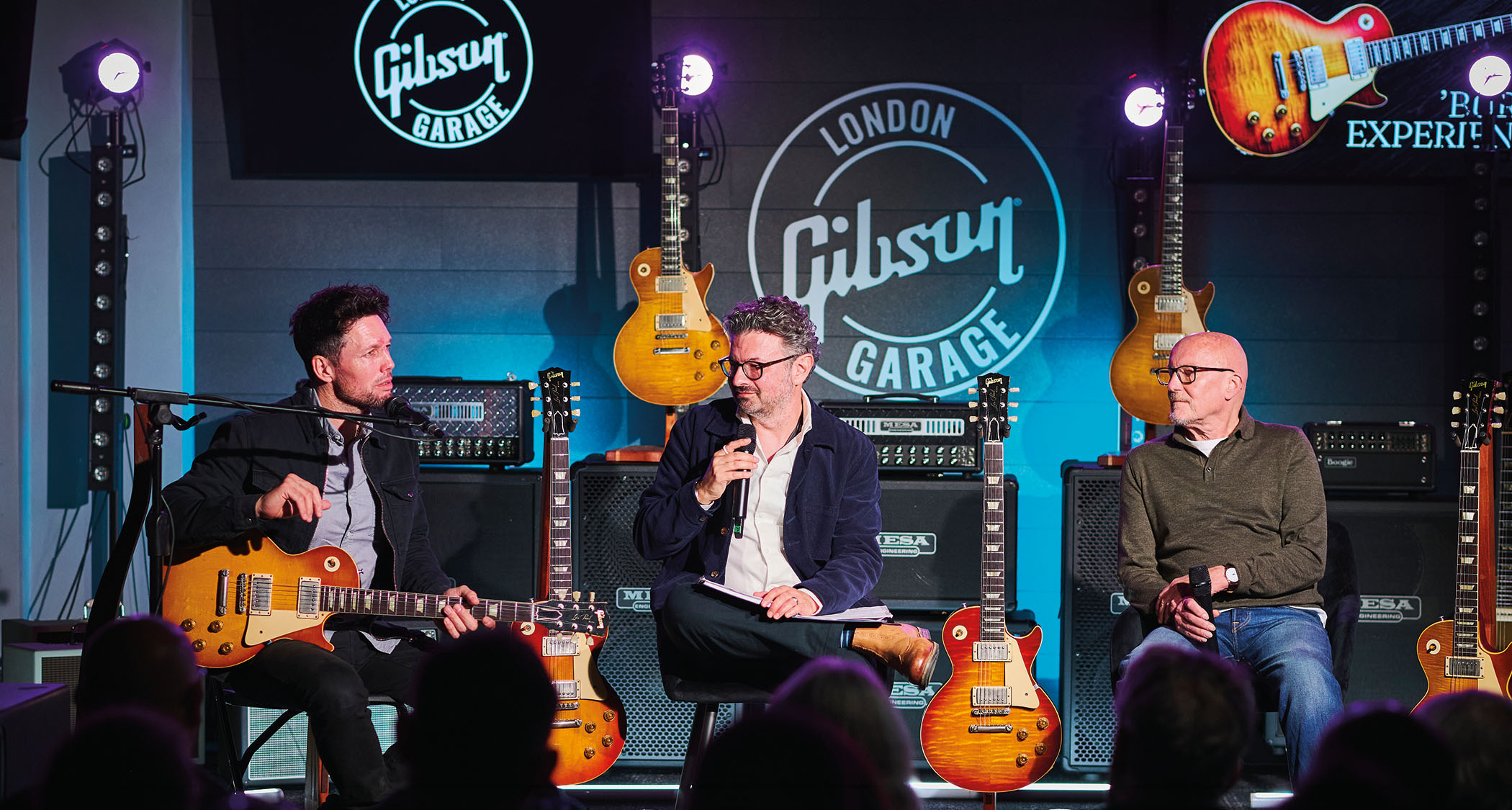Rival Sons’ Scott Holiday: “I don’t need to play all the notes at a very high speed. I can appreciate that in players, but I’m looking for texture and color”
As the Californian rockers return with Darkfighter, Holiday invites us into his guitar room to talk mad-scientist fuzz pedals, his adventurous new doubleneck, and why he mods no more
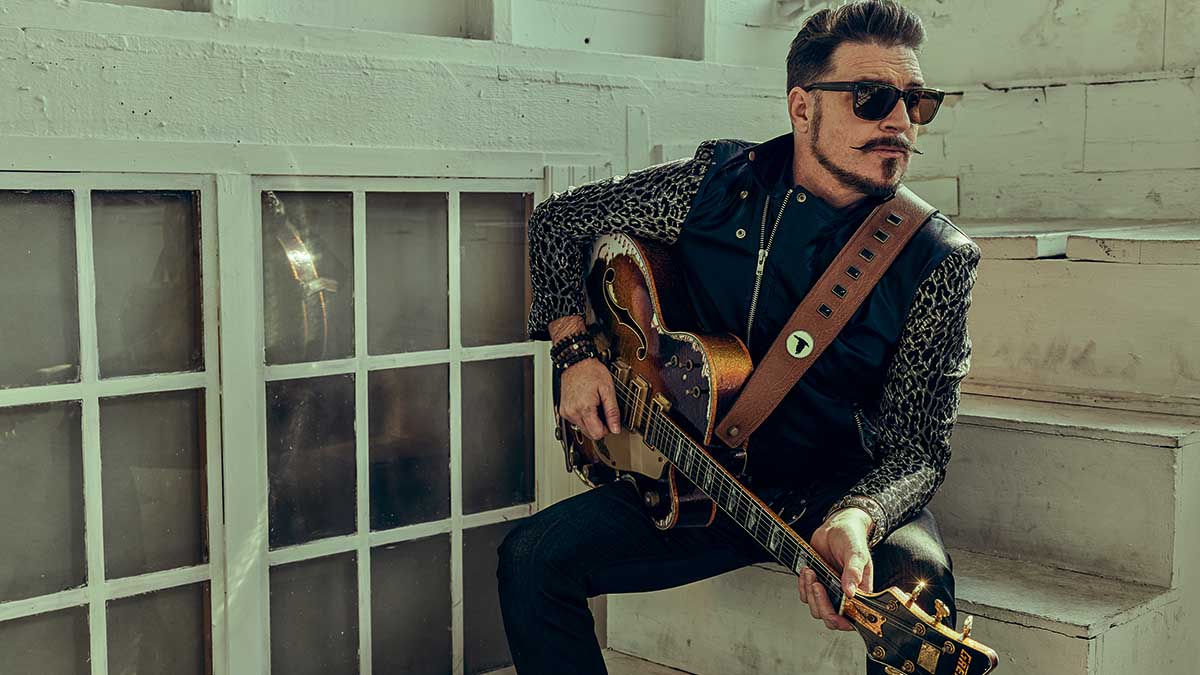
No wonder Scott Holiday wants the webcam on. As engaging as the Rival Sons guitarist undoubtedly is, it’s hard to stop yourself peering past him at the treasure trove that is his home guitar room in Los Angeles.
Over his shoulder, you’ll spot rarities, antiquities, prototypes, esoteric one-offs and several hundred stompboxes stacked into a true-bypass Hadrian’s Wall. “This is an opportunity to show off my toys,” beams the man nicknamed Mr Fuzzlord. “It’s a guitar magazine. You actually want to see this stuff.”
Holiday is the best kind of connoisseur. Rather than keep his collection under glass cloches, swiped only with a duster, the 47-year-old has used his gear in anger on the Rival Sons catalogue since 2009’s debut, Before The Fire.
And while atmospheric seventh release, Darkfighter, represents another kick against the notion that the Californians are ’70s acolytes adrift in the wrong century, Holiday is quick to remind us that his gear tastes span beyond vintage. “I’m way more relaxed than that,” he considers. “I’m looking to explore and create new sounds.”
How do you feel when you go into the studio to make a Rival Sons record?
“Mostly excited. Working with a producer like Dave Cobb, I know he’s gonna throw curveballs and the songs are gonna take left and right turns. I have a group of guys that are all very proficient. They’re all really wonderful players. So everybody is fighting to make a statement, as well as supporting the track. It’s a lot of energy filling up the room. I don’t have any backseat players.”
You’ve used the word ‘cinematic’ to describe your new album. Tell us more…
All the latest guitar news, interviews, lessons, reviews, deals and more, direct to your inbox!
“Even if you go back to Before The Fire [2009] and tracks like The Man Who Wasn’t There and Flames Of Lanka, there’s a cinematic quality I’ve always wanted to harness, which sucks you in and paints a picture. I’ve always prided myself on being that kind of player, where I’m more into painting with colour.
“I don’t need to play all the notes at a very high speed. I can appreciate that in players, but I’m looking for texture and colour. That’s how I listen to music. Although I love a good rock ’n’ roll guitar solo, too – and plenty of fuzz.”
The Edge was a great textural player... he took a lot of shit for having to use the delay – but it was really appropriate
For you, who are the guitars players who excel at that textural approach?
“Certainly, guys like Dave Gilmour. I think Nels Cline is a big colour painter. A lot of the prog guys. I mean, I think Page was a big colourful guitar player like that. Nick Zinner from the Yeah Yeah Yeahs. The Edge was a great textural player. Not seemingly a technical player to anybody, and he took a lot of shit for having to use the delay – but it was really appropriate.
“If you’re looking at what he’s doing with U2, they did not need Larry Carlton. I’m gonna mention Jeff Beck because I miss him already. How does a blues guitar player become the biggest prog phenom ever? They’re all textural players.”
Is it inadequate to call Rival Sons a ‘blues-rock’ band?
“I hear that all the time. We even play blues festivals. I don’t get it at all… but I do get it. We can play the shit out of some blues-rock, but I’d say there’s probably a lot of acts that do it better if that’s what you’re looking for.”
Having said that, there’s a few raging solos…
“Sometimes, you have to pop a wheelie, man. I aimed at economy for the most part. I appreciate a guitar player like John Frusciante, who we know can spray [virtuosity] all over us but often will play a strong melody and counterpoint. And it’s like, dude, the restraint and wisdom it took to do that. I was aiming at that on this record. But with that said, there’s some raging shit.
“On the track Darkside you’ll hear a big, open, very Gilmour-esque solo. I like the attack on the bridge from Nobody Wants To Die. I think that’s a good, toothy, boisterous, raucous guitar solo. Mirrors, for me, is almost a nod to a proggy Zappa kinda thing. It’s a guitar player’s record.”
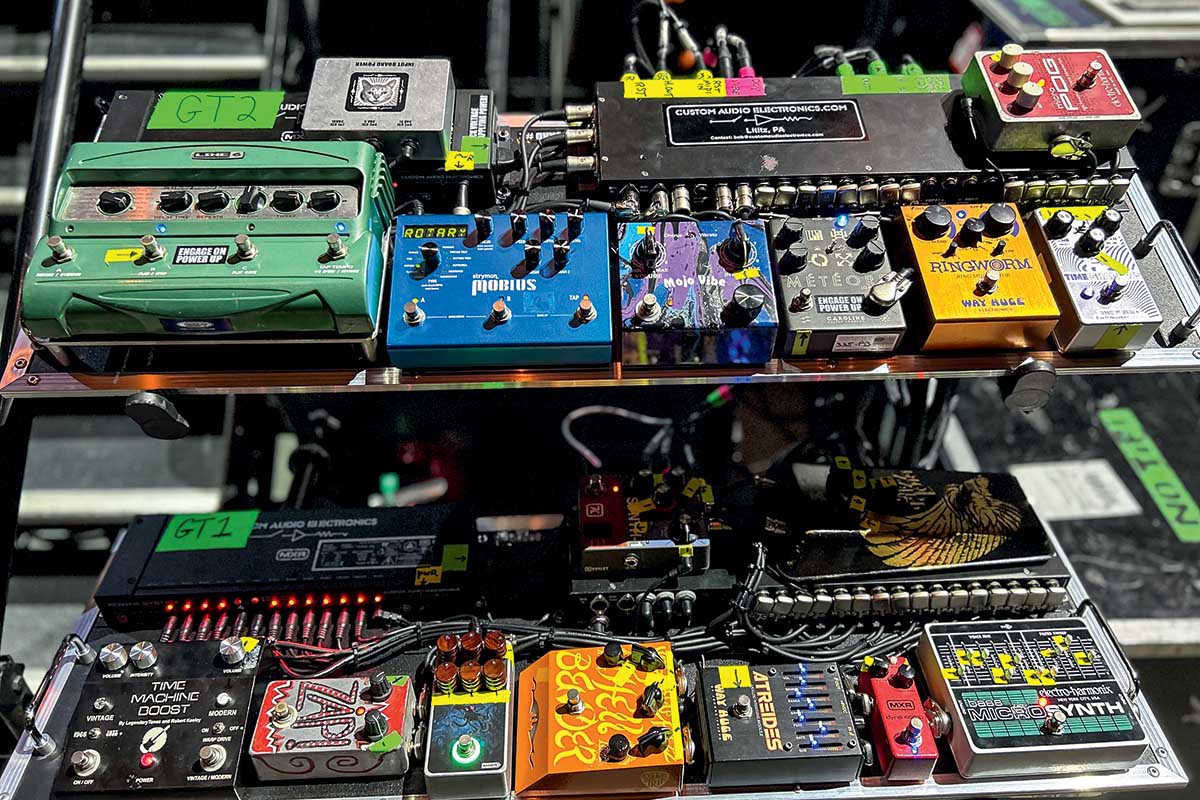
You’ve said you got further away from your influences on this album.
“Well, I don’t want to sound pretentious or self-important. I don’t want it to sound like, ‘I’m so flippin’ original that I no longer need my influences’ – which would just be ridiculous. You need them forever. It’s a wellspring. The point is, when we’re younger players, we lean on our influences more.
“Every artist does that. And you can hear that progression as they move away. I just name-dropped a bunch of people, but in writing this record with Jay [Buchanan, singer] and how I approached colour, texture, soloing and arrangement, it wasn’t based so much on my heroes. It wasn’t like, ‘I’m gonna do a dirty little Yardbirds thing here.’ There’s plenty of influence on this record. But we’re feeling more like ourselves.”

Do you have any favourite memories from the sessions?
“I don’t drink or do drugs. When we’re working, that’s not to say it isn’t lighthearted, but it isn’t a party. It’s much more labcoats than shots and chicken wings. But my best memory is cutting the song Darkfighter in this studio that Dave Cobb built in the back of his house in Savannah, Georgia. It’s a nice studio, but it’s small in comparison to RCA Studio A, where we did the rest of the album.
“That song is an epic that we’ve been working on a long time. We cut it live and really improvised. It’s captured very much like our old-school days. Reawaken the wild animal, y’know? With the song Darkside, I remember everybody celebrating my solo and everything just sounding right. Every once in a while, it’s like that in the studio. As you’re laying it down, you’re saying, ‘Holy shit, this is sounding good.’”
Every once in a while, it’s like that in the studio. As you’re laying it down, you’re saying, ‘Holy shit, this is sounding good
Did you use any new approaches that pushed you out of your comfort zone?
“I use something I call the ‘mind eraser’. I believe you can learn so much that it’s hard to have fun. So I try to flatten everything out and approach writing and guitar from a fresh perspective. I try to use unfamiliar tunings, unfamiliar modes, unfamiliar scales. Like, ‘forget everything you know’. That’s certainly how I approached this record and I find it puts me into different positions on the neck and makes me create different phrasing.”
What’s the hardest thing to play on this album?
“More than technical skill, there’s a lot of nuance throughout the record. What I try to do – more than ‘this is my ultra-technical Eruption-type solo’ – is nail the feel. So if a player is going to play the solo on Mirrors or Darkside, the key to it won’t just be the notes; it’ll be getting in and out of that phrasing, because it is so deeply buried in my voice. Like when I was a kid and I’d try to learn Van Halen and I realised, ‘I can learn these parts, but I can really tell this is his voice.’ I think there’s plenty of that happening on this record.”
Do you think you can hear your state of mind in your guitar playing?
“I think it depends on what kind of listener you are. Guitar is never going to resonate like a voice and words for some people, but for those of us who listen to music with an acute ear, and you can listen to a horn and feel the emotion – I’ve done my best to put emotion to tape.”
Can you tell us about your Darkfighter setup?
“My producer is a collector and he has everything. But what I always find myself returning to in the studio is small amps. There’s a Supro called the 1600 Supreme that’s not being made any more. It’s a modern amp, but it’s very old-school-sounding. It’s just a small single-channel amp that sounds really good, man. No reverb, nothing. I had this big Bradshaw rig built and I ran that entire rig into that tiny speaker.
“Because I have this silly moniker, Mr Fuzzlord, I obviously had to pick some pedals. Isle Of Tone build these very boutique vintage-style fuzzes. They’re crazy. They just made me this beautiful custom pedal [holds up stompbox named ‘Mr Fuzzlord’]. It’s essentially like a hopped-up Fuzz Face. It’s so organic and chewy and articulate – and it gets so out of control.
I designed a pedal with KossekFX... I said, ‘It’s gotta be named The Kraken and have old wooden control knobs like you found it on a pirate ship. And the Kraken’s eyes light up when you engage it’
“Then I designed a pedal with KossekFX out of Denmark [named the Deep Sea Kraken OctaFuzz Generator]. It became this eight-stage octave fuzz. I said, ‘It’s gotta be named The Kraken and have old wooden control knobs like you found it on a pirate ship. And the Kraken’s eyes light up when you engage it.’ It’s got a really low sub-octave and a high octave. So I used that on a handful of songs. That pedal was an MVP.
“On Bird In The Hand, the digital-sounding hard fuzz in the verses is another favourite pedal I discovered, the Keeley Synth-1. It’s not even a fuzz, it’s like a synth keyboard sound. But I’m giving away all my secrets!”
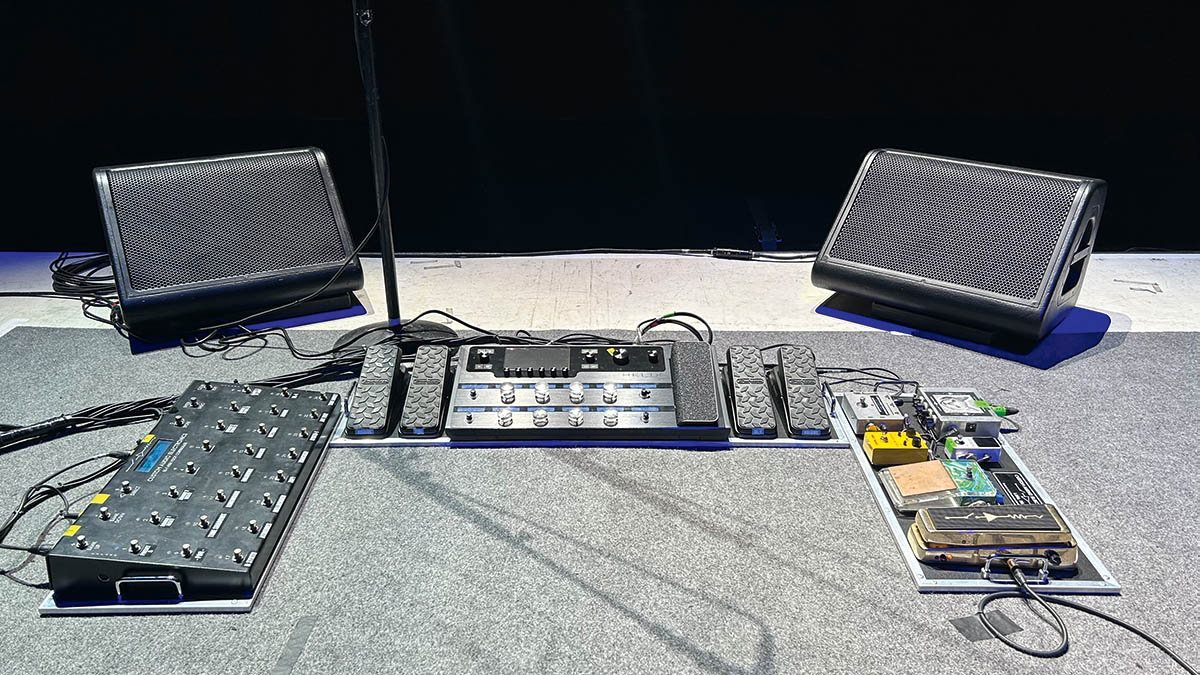
How about the guitars on this record?
“I don’t think my usual ’99 blue Firebird was even used. I had a bunch of new guitars. There was a custom Falcon I did with Stephen Stern over at Gretsch. It’s got Super’Trons by TV Jones and I can split them. The body is all hollow. It’s super-beautiful and it kinda tells a story.
“But I also used some new builds that I got from my good friend Matt Hughes over at Banker Custom Guitars. He built me a really beautiful korina V to historic spec and I asked him to put a Bigsby on, like Lonnie Mack style. And I’m not saying I started the trend, but you’re starting to see that Lonnie Mack thing everywhere again now. So I used that and my ’66 330 a whole bunch on the record.
“As for acoustics, at Carter’s in Nashville, they always have the best Martins in their acoustic room. They had a specific pre-war that was a real cannon. They’re really expensive: you’re getting into the $18,000 to $25,000 zone. So I didn’t get it. But the one I was looking at, Dave Cobb brought back to the studio and we used it.”
Anything else in your Darkfighter rack?
“Mixing standard and baritone guitars was a recipe we used on songs like Bright Light, Rapture and Darkside. I have a Kauer Banshee baritone, but in the midst of this record, I started thinking, ‘I have to make a goddamn doubleneck baritone so I can play these songs live.’
“I asked Gretsch and, of course, they said, ‘It’s too expensive.’ So I went to Matt at Banker and said, ‘Would you be adventurous?’ And Matt said, ‘Hell, yes, let’s do it.’ So Banker made me this custom baritone and six‑string doubleneck. I also used Dave’s ’54 Esquire all over the record. It’s one of my favourite-ever guitars because of its simplicity. The Telecaster is so manly, right?”
As a young player, you used to mod your guitars. Do you still?
“I’m not taking them apart these days, honestly, because the guitars I’m getting are from, like, Stephen Stern or Matt at Banker. I don’t need to do it. I have guys that are much better at wiring and doing things cleanly, so I don’t have to reopen it up and do a nasty little job.”

You have a reputation as an old soul. Is there a certain vintage that you won’t stray beyond?
“No, I find that too precious. I get why guys are like, ‘Hell, I use my Fender Twin and my ’58 Les Paul.’ But that’s not me. I’m building new things. Things that have never been made. Like, the stuff I’m showing you is new things.”
Finally, there are also rumblings of an album sequel, Lightbringer – what’s the status?
“Just last night, I got the final masters. You’ll be able to tell it’s all part of the same project. Darkfighter is a cinematic album, and with Lightbringer you’re still watching the same film.”
- Darkfighter is out now via Atlantic.
Henry Yates is a freelance journalist who has written about music for titles including The Guardian, Telegraph, NME, Classic Rock, Guitarist, Total Guitar and Metal Hammer. He is the author of Walter Trout's official biography, Rescued From Reality, a talking head on Times Radio and an interviewer who has spoken to Brian May, Jimmy Page, Ozzy Osbourne, Ronnie Wood, Dave Grohl and many more. As a guitarist with three decades' experience, he mostly plays a Fender Telecaster and Gibson Les Paul.
